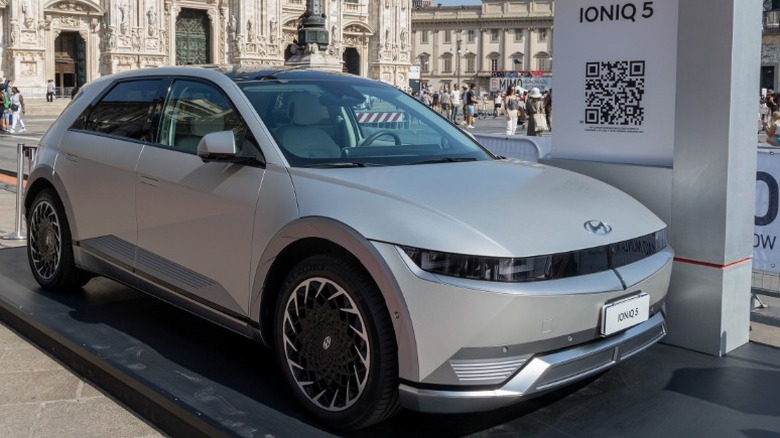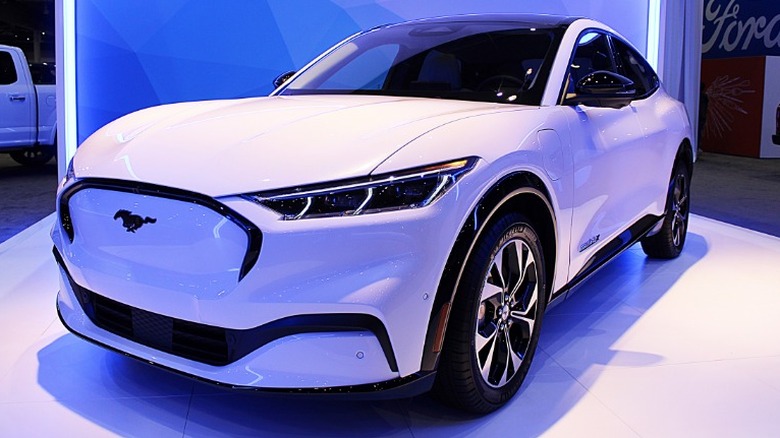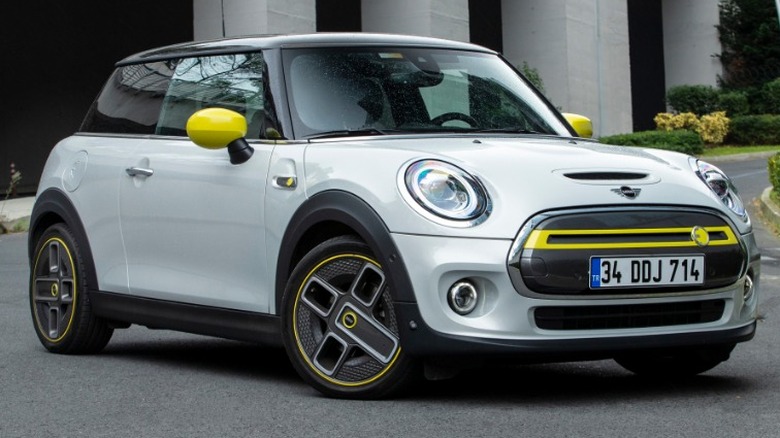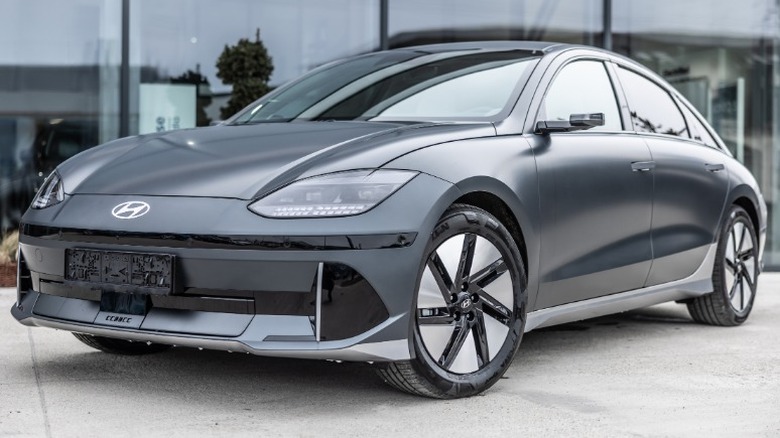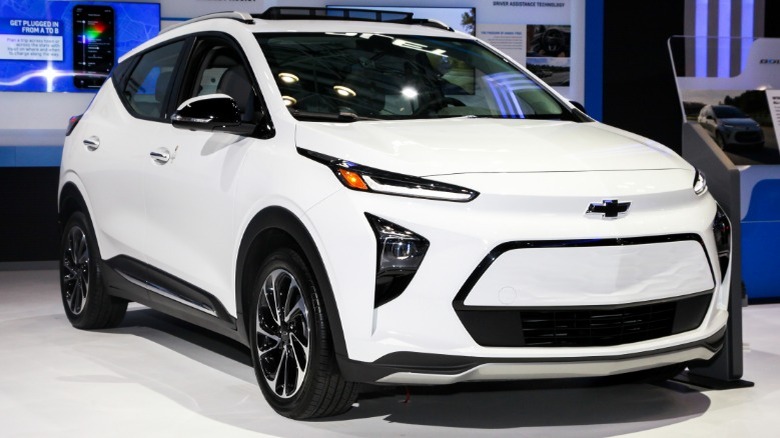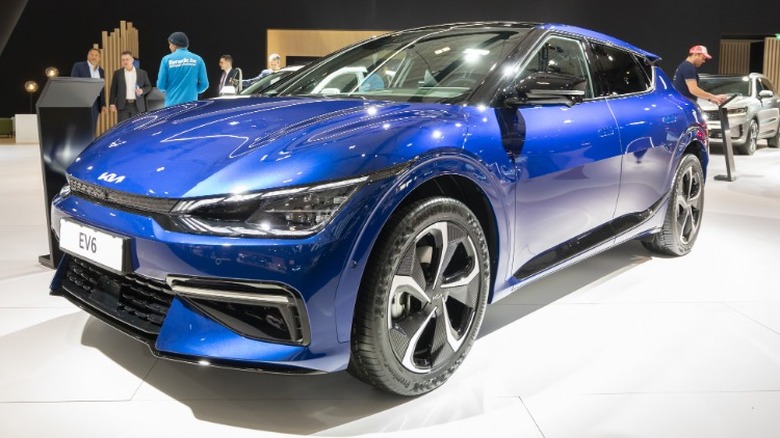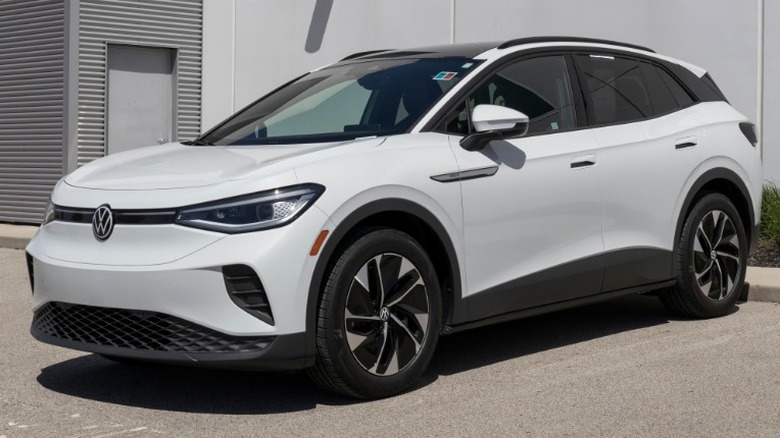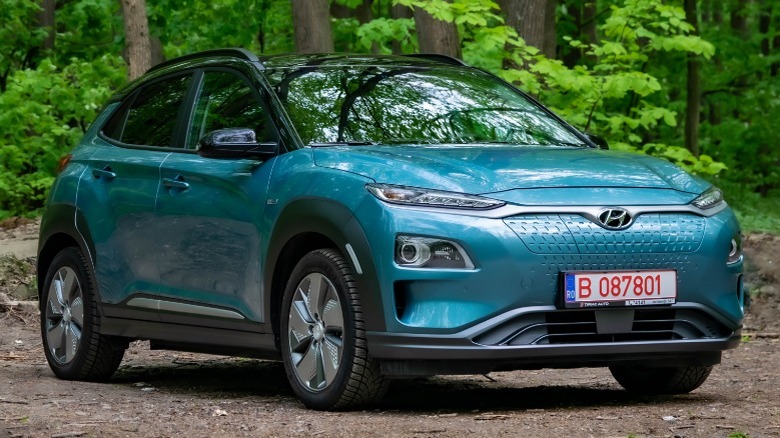8 Cheap Electric Cars That Are Much More Interesting Than Tesla
It has been many years since Tesla was the only electric vehicle (EV) game in town, and competition is sprouting up from both startup and legacy automakers. There is no question that Tesla is a trailblazing company that pioneered mass production of EVs and the proliferation of charging networks and other battery-powered cars, but consumers now have more options than ever. Despite the cutting-edge technical innovations and novel features that drive the popularity of Tesla vehicles, all owners are not satisfied with their own experience as issues with quality control and customer service are well documented and have been reported for many years. Therefore, many car buyers wanting to switch to an EV are considering other brands more than ever.
With legacy manufacturers adopting battery technology across the board, consumers benefit in many ways. The proliferation of technology in mass production historically brings prices down. More EV producers should result in falling prices. Furthermore, automakers with a network of sales and service centers established for decades — several with more than a century — have long-established procedures and protocols for ensuring customer satisfaction and a steady supply of replacement parts. They also have mature quality control protocols to prevent shoddy workmanship. Even with the new competition, EVs remain frustratingly expensive overall, and Tesla models are among the priciest. Considering the relative values of roughly equivalent models, these eight electric cars are cheaper and much more interesting than a Tesla.
2023 Hyundai Ioniq 5
The Ioniq 5 is an affordable cutting-edge EV with superb styling and a bevy of forward-thinking features. Its styling is fresh and unique, taking cues from a digital world looking like something that would fit perfectly into a futuristic sci-fi thriller. Ample squares, rectangles, sharp creases, and multicolor lights emphasize the look. This is partially why Car and Driver chose it as the 2022 EV of the year, but it garnered that accord equally on the merits of its drivetrain and technology.
Up to 303 miles of range can be had from its 320 horsepower driving all four wheels, and Hyundai's new charging tech enables a battery at a 10% charge to be brought up to 80% in just 18 minutes. These impressive specs are punctuated by its lively acceleration that gets the car to 60 mph in just 4.5 seconds. The excellent performance is punctuated by an attractive and well-appointed interior that includes a few features that come out of left field, such as the power leg rest, sliding center console, and 1,900-watt generator capability that is perfect for tailgating. It is one of those cars that is seemingly too good not to love, and its base price of $42,785 comes in at more than $20,000 less than its Tesla Model Y competitor.
2023 Mustang Mach-E
For many die-hard fans of the iconic Ford Mustang pony car, the 5-door SUV battery-powered version felt like a slap in the face. Yet, setting aside any archaic notions of automotive loyalty and misplaced nostalgia, the Mustang Mach-E is a truly exciting car. So, taking away any controversy and looking at the car on its own merits you will find an excellent EV that competes effectively in most every aspect.
Ford's first go at an all-new electric platform — previous EVs have been adapted from gasoline engine models — shows that the Blue Oval can adapt to the market with innovative products. The Mach-E is available in two and four-wheel-drive with top-level trim options delivering 480 horsepower and an incredible 634 pound-feet of torque, which translates into a 0-60 mph time of just 3.5 seconds.
But the Mach-E is not all about power as the nicely appointed interior and complement of tech features are equally impressive. The focus of the uncluttered dashboard is the vertical touchscreen now prominent across Ford's range and can operate and customize nearly every system in the car with familiar Ford software driving it. The rest of the interior is stylish and the fit and finish are excellent as well as comfortable. Plus, for about $1,300 plus installation, you can add Ford's Charge Station Pro, which is a bidirectional charging station capable of a full charge overnight that also allows your car to power your house during an outage. Mach-E prices start at $47,795, which is decidedly not cheap, but compared to the Tesla Model X for more than $100,000, it is a bargain.
2023 Mini Cooper SE Hardtop
As an electrified version of a Mini Cooper 3-door, the SE Hardtop model offers the same dynamic driving experience as gasoline-powered models. Minis are already known for being zippy and sharp-handling cars, although the additional battery weight distributed throughout the floorboard will affect that. Moreover, the interior, while cramped, is stylish and features all of the same hallmarks expected from other Minis.
The electric Mini target buyer is different from that of most EVs. With a peak torque rating of 199 pound-feet and horsepower of 181, the motor is far less powerful than some of the top-rated EVs on the market, and its admittedly very low range of just 100 miles pales in comparison to any Tesla as well as most other EVs on the market. Yet, for the right customer, this car is perfect. That customer likely lives in a crowded city and rarely leaves the city or even ventures into the suburbs. Parking is at a premium and small cars make fitting into cramped spaces much easier.
Driving in congested cities, especially in Europe, is where this car does best. With aggressive regenerative braking, stop-and-go traffic can be done almost without ever needing the brakes and the motor offers plenty of power to get the tiny car to push through lanes of traffic with ease. The biggest selling point of this car is the price. At a base price of $30,750, it is the most stylish and best-equipped of any EV in its range.
2023 Hyundai Ioniq 6
Hyundai is rolling out multiple battery-powered vehicles under the Ioniq name. The second in this lineup is the Ioniq 6, which shares a name with the Ioniq 5, but its styling goes in a different direction altogether. In contrast to the squares and sharp creases, the Ioniq 6 is full of curves and sweeping body lines. It is available with single or dual motors, and power ranges from just 149 horsepower up to 320. Hyundai has also stepped up its game with the technology on this one, as the range from the top trim level maxes out at an impressive 361 miles. This puts it within the top three of all EVs available for purchase right now.
Hyundai is targeting Tesla Model 3 buyers with this car as it is of a similar size and offers similar power and range. It is also not necessarily much cheaper than the Model 3 either. But when considering the interior of both cars, the Hyundai wins hands down. While the Tesla is spartan and minimalist, the Hyundai is an upscale affair with luxury touches and plenty of extras. It features dual screens that offer the driver a sizable gauge cluster display augmented by a touchscreen control display, and they are both accompanied by a selection of physical switches for commonly used functions, such as power mirrors and door locks. The Hyundai base price of $42,715 is competitive with the Model 3 price of $44,630, but the interior design along with typically good fit and finish makes it an even greater value.
2023 Chevrolet Bolt EUV
Among the lowest-priced electric vehicles, the Bolt EUV offers comparable range in a conservative yet attractive package. It is not trying to be the future, but does seek to be an electric alternative to the cars people are already driving. The Bolt EUV is an upgrade in size from the existing Bolt EV, and it is a welcome addition to the EV lineup from Chevrolet.
Chevrolet appears to be suggesting this is the SUV version of the Bolt. It is larger, but otherwise retains the same ride height, although cargo space is expanded. The motors output 200 horsepower and 266 pound-feet of torque, so it has plenty of power, which is pretty good for what is effectively an entry-level EV. The interior is well appointed and features most of the same gear you would expect in Chevrolet's other gasoline-powered cars, and the interior quality is excellent with comfortable seating and good fit and finish. There is one glaring drawback to getting the Bolt, and that is the lack of fast charging options. DC fast charging is limited to 55 kW, which means waits of well over an hour to claw back more than 100 miles of its more than acceptable 247-mile range. The Bolt's limitations are largely because it was developed before the introduction of the GM Ultium EV platform, and future models should remedy these shortcomings. While it will never compete with a Tesla on charge time, its base price of $28,195 also qualifies for a $7,500 tax credit, making it a very interesting choice for those on a budget.
2023 Kia EV6
With shared corporate ownership of Hyundai and Kia, sharing of technology is allowing both brands to rapidly expand EV offerings. Plus, the new battery-powered models all seem to be benefitting from many excellent design choices. A perfect example is the new Kia EV6, an electric crossover that offers attractive styling with a blend of curves and angles that help to set it apart in the crowded field of crossovers that all look the same.
While the EV6 is officially a crossover, one could be forgiven for calling it a station wagon as it sits relatively low and keeps an overall low profile. Power ranges from 167 horsepower up to 576 for the GT-Line high-performance model, and the maximum range possible is 310 miles for rear-wheel-drive models. The Kia also benefits from Hyundai's new charging technology and is among the fastest charging cars available — 70 miles can be added in just five minutes and an 80% charge may only take 20 at a Level 3 charging station.
The Kia EV6 really looks interesting when discussing its price: $48,700 is where the pricing starts for the base model, but can inch up to $61,600 for the top GT-Line high-performance trim. But with a base price significantly higher for the Tesla Model X, even the high-performance Kia would be highly worthy of consideration.
2023 Volkswagen ID.4
The automaker that has announced one of the strongest plans dedicated to transferring over to nothing but electric power is Volkswagen. With plans to eliminate internal combustion engines in the coming years, VW is rolling out EVs in rapid succession, and the ID.4 is an excellent crossover offering suitable for drivers everywhere.
The ID.4 continues with VW's design from its ICE cars rather than representing new and radical designs to set it apart. This is the future of VW, so it should look like one. Therefore, it does look similar to other crossovers, but that is mostly because all crossovers kind of look alike these days. However, the VW does offer a very comfortable ride and the battery powertrain is good. Horsepower ranges from 201 to 295 with top trim boosting torque to 339 pound-feet, giving the ID.4 good acceleration, although the range is a bit lacking compared to its competitors at just 208 miles for the base model. Larger battery options can boost that to 275. Modern VW interiors are known for having excellent design and comfort and this EV is no different. The 2023 model features an enlarged 12-inch touchscreen and the newest generation of VW vehicle interfaces are among the best made today. ID.4 pricing begins at $38,995 and when put head to head against the Tesla Model Y, it would be hard to justify the extra $20,000 price tag of the latter.
2023 Hyundai Kona Electric
Hyundai's drive toward EV mobility includes new and upcoming designs built upon new electric platforms and looks very promising, but the company has also already electrified some existing models, including the Kona. For 2023, the Kona Electric is Hyundai's entry-level EV. It comes with 201 horsepower pushing the front wheels only but gets it to 60 mph in just 6.4 seconds. While it won't be seeing many checkered flags, it has ample power for city traffic and highway cruising. Furthermore, the weight of the battery helps to keep it feeling planted through the corners and provides better-handling characteristics than most small cars. Compared to many lower-priced EVs, the Kona delivers an excellent range of 258 miles, far exceeding that of competitors like the Mini Cooper SE or Mazda MX-30.
Inside you will find a basic Hyundai interior. It is comfortable and of good quality, but it is lacking some of the extras seen in many electric cars, including Tesla. It does offer adaptive cruise control, lane-keep assist, and other mercer aides as well as a robust infotainment package with a 10.3-inch touchscreen. Where the Kona beats every other car in its class is in after-sales support. Unlike Tesla, there are Hyundai dealers everywhere, and they will be there to do included maintenance for the first three years or 36,000 miles — and the powertrain and battery warranty goes for 10 years or 100,000 miles.

